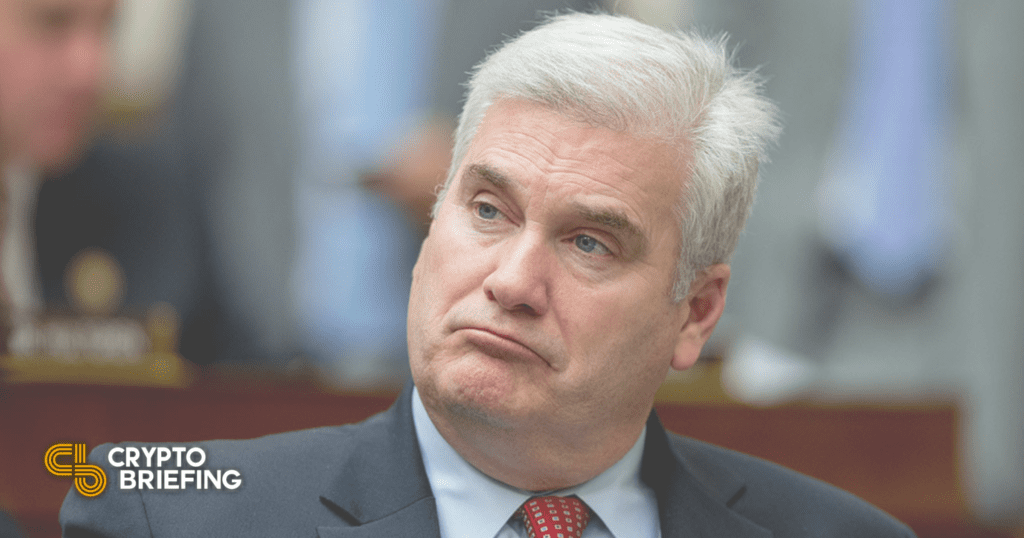
Photo credit: Andrew Harnik/AP Photo
U.S. Lawmaker Questions Treasury Over Tornado Cash Sanctions
Rep. Tom Emmer (R-MN) sent a letter to the Treasury Department today asking for clarifications regarding the recent sanctions against Tornado Cash.
The U.S. Treasury’s decision to sanction a piece of software presents a “divergence from previous OFAC precedent,” claims Rep. Tom Emmer (R-MN).
Sanctions Questioned
A U.S. lawmaker is questioning the U.S. Treasury’s decision to sanction Tornado Cash.
Congressman Tom Emmer (R-MN) published a letter today addressed to Treasury Secretary Janet Yellen in which he stated the sanctions against Tornado Cash, a “neutral, open-source, decentralized technology,” raised new questions concerning U.S. national security as well as individuals’ right to privacy.
On August 8, the Treasury’s Office of Foreign Assets Control (OFAC) took the unusual step of issuing sanctions against the Ethereum mixing protocol Tornado Cash, along with several Ethereum addresses associated with it, making use of the protocol effectively illegal under U.S. law. The move has been met with fear and criticism, with many in the crypto community raising concerns about the government’s ability to issue a blanket ban on a piece of open source software, as opposed to a person or entity, as is traditionally the case.
Emmer called the addition of Tornado Cash to the sanctions list a “divergence from previous OFAC precedent” since several of the banned addresses do not belong to individuals, entities, or properties but are “widely distributed technological tools” that are not under the control of any centralized party.
The congressman asked for clarification on several points, including whether the Treasury believes some of the sanctioned addresses belong to individuals in control of Tornado Cash, which factors led the Treasury to add a piece of technology to a sanction’s list, whether innocent U.S. users of Tornado Cash have recourse to unblock their funds, or whether people that receive unsolicited funds from sanctioned addresses should be considered in breach of the law.
Emmer is seen as a friend of the crypto industry on the Hill and has been a particularly vocal critic of the government’s efforts to regulate the industry, which he often characterizes as overreach. In July, he criticized the Securities and Exchange Commission under chair Gary Gensler as a “power-hungry regulator” that was attempting to “jam [crypto companies] into a violation.” He also opposes a central bank digital currency (CBDC) being issued directly to consumers, citing privacy concerns and arguing that full-scale CBDCs, such as China’s digital yuan, “fundamentally omit the benefits and protections of cash.” Today’s letter to the Treasury will likely further his reputation as a crypto ally in Washington.
Disclosure: At the time of writing, the author of this piece owned ETH and several other cryptocurrencies.
